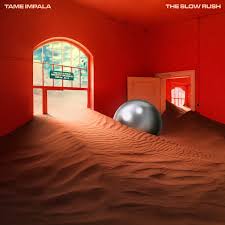GUIDED BY VOICES - Let's Go Eat The Factory
 Monday, January 23, 2012 at 11:00AM
Monday, January 23, 2012 at 11:00AM 
![]()
Try as we might to deny it, none of us is immune to the powers of sentimentality. For a good handful of us (this writer included), this knee-jerk response simply can't be overlooked in the curiosity about this record.
Do I even need to go into the reasons why? If you're on this site, probably not but just to be safe... Let's Go Eat The Factory represents the first album by the 'classic' line-up of Guided By Voices since 1996's exceptional (and, in my opinion, career best) album Under the Bushes, Under the Stars. While GBV (led by the human songwriting vending machine that is Bob Pollard) would go on to record many more albums with different personnel, it was the line-up of Pollard, Tobin Sprout, Mitch Mitchell, Kevin Fennel and Greg Demos that turned indie rock on its ear in the mid-'90s.
The magic of this equation centred around two key elements: spartan, hissy home recording, and an uncanny ability to unleash literally dozens of exceptional pop hooks through songs that lasted only as long as it took to express them. For example, 1995's Alien Lanes contains a mind-bending 28 songs in only 41 minutes. And unlike hardcore albums with a similar work rate, this trait had nothing to do with either speed or a blurring sameness of the material—these records were wildly unpredictable, leaping from muscular arena rock to mini-prog suites to surreal psych and anywhere else they fancied. Though the group spawned a legion of imitators, they were quite unlike any other band.
So it's not surprising that even though Pollard had never stopped releasing albums since GBV's official end in 2004 (and at the rate of about four a year!), many of us who had left the group behind are emotionally drawn back to the band by this news. And Let's Go Eat The Factory does replicate some of their fabled magic, in that it at least sounds the part. After Bushes saw the career basement-dwellers begin to embrace the professional studio, the band grew increasingly distanced from their trademark lo-fi style. Although Pollard has been all over it in his solo releases since, it's a real jolt just to hear how scrappy Factory sounds. This low production value works hand-in-hand with the charmingly less-than-tight performances to create an atmosphere that truly is reminiscent of classic GBV. Loose, impulsive, messy...love it.
Where it's not quite up to snuff is in the songs themselves. As unorthodox as both '94's breakthrough Bee Thousand and Alien Lanes were, they were also relentless in their presentation of hit after hit after sun-warped hit. In this respect, Factory has more in common with the records that led up to that breakout pair, Vampire On Titus and Propeller—good records, but ones with more than their fair share of filler. So while "The Unsinkable Fats Domino," "Imperial Horseracing," "Laundry and Lasers" and "Hang Mr. Kite" are all pretty great, many others sound like these newly reformed gents are still struggling to find that magic balance between spontaneity and quality control (the latter admittedly never a GBV strong suit, even at their peak).
If there's one truly magical thing about Factory though, it's the return of Tobin Sprout. Just hearing his voice again on a GBV record is cause for celebration—his gentle boyish tenor always an appealingly contemplative foil to Pollard's brazen, cocky obfuscation. His contributions, like "Spiderfighter," "Old Bones" and "Waves" are some of the LP's best, and put into sharp relief just how much he's been missed by the band (and Pollard) over the past fifteen years.
With another disc apparently already recorded and ready to go in May, it seems like this reunion may be a bit more than a passing fancy. If that's the case, I wouldn't bet against Factory being the harbinger of even better things to come. In other words, Bee Thousand II this is not, but hey, it's only January...
 Pop/Rock
Pop/Rock 

Reader Comments